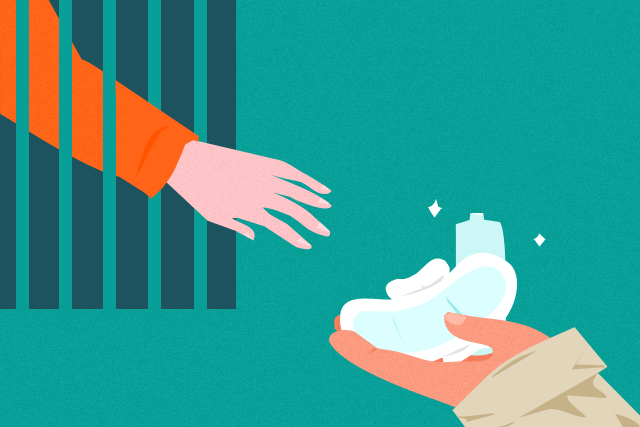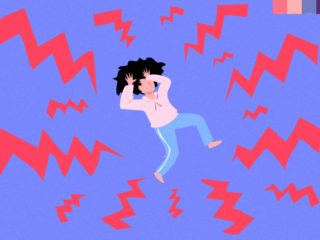Another day, another episode of “men think they’re experts on women things.”
During a Criminal Justice and Public Safety Committee meeting, US politician Richard Pickett voted against providing imprisoned women in their state with free and unrestricted access to feminine hygiene products.
His reason? “Quite frankly, and I don’t mean this in any disrespect, the jail system and the correctional system was never meant to be a country club,” he reportedly said.
Um, thanks for the disclaimer but it doesn’t do anything. That statement was hella disrespectful and yes, we take offense. The fact that you equate providing women their basic necessity as handing them with frivolous luxury shows that you know nothing.
Rep. Pickett: "Quite frankly, and I don't mean this in any disrespect, the jail system and the correctional system was never meant to be a country club..they have a right to have these&they have them. If that wasn't the case, then I would be supporting the motion, but they do."
— Alex Acquisto (@AcquistoA) March 15, 2019
It further proves why women need a seat in the government. There are just some insights only women can provide—like with issues on menstrual hygiene.
For one, I think all women would agree, having access to feminine hygiene products should be considered a basic right. As if it weren’t enough that we have to suffer and struggle monthly, we also have to think about the financial burden of having to avail the necessart products. If not given for free, the government should at least allot budget to ensure all women can access these products.
But what do they do? They make it more expensive instead. For the longest time, the pink tax was applied to sanitary napkins as it was considered a “luxury item.” It was only recently that many institutions are making changes.
If it weren’t for activists, the system would continue to go blind to the fact that menstrual hygiene is a health issue, and thus a human rights issue
If it weren’t for activists, the system would continue to go blind to the fact that menstrual hygiene is a health issue, and thus a human rights issue. According to Human Rights Watch (HRW), “For years, human rights organizations have documented how periods, and the poor policy and programmatic support for managing menstruation, have a negative impact on women’s and girls’ human rights.”
“With too little support to handle their periods, women and girls have reported staying home from school, missing work, banishment by families, and humiliating treatment in their communities.”
Bustle highlighted this when they released a video focusing on the struggles of homeless women in the US when they’re on their periods.
HRW additionally cited how “Decisions about the operation of refugee camps, detention centers, schools, and workplaces that affect the way periods are dealt with directly affect human rights.”
This is what Rep. Pickett fails to see. Despite a federal policy change in 2017 that include free access to menstrual products, reports say that most still pay anyway. Moreover, many use a size not meant for their body type and, in many cases, inmates have to request them, and the number of products each person can use is limited.
Whitney Parrish, Women’s Lobby director of policy and programs in Maine stressed, “Imagine you’re a person who has their period inside of a correctional facility. You’re given a limited supply of menstrual products per month, often of low quality due to cost saving, and when you run out, you’re out.”
“You may have no money to go to commissary, and if you do, you may have to weigh that purchase against other necessities, like making phone calls to your children or attorney. You are forced to make the impossible decision of constructing your own menstrual products, using anything from clothing or notebook paper in place of a tampon,” she continued.
Mind you, this is not a “what if” situation. Accounts published by Women’s Health in 2016 include women admitting to using makeshift pads like notebook paper to dirty shower sheets.
Pickett is ignorant. Giving sanitary pads to female prisoners is basic as food & water. What is benefit of withholding pads? Women going to get a meal leaving trail of blood is a safety hazard on numerous levels for others & prison employees. & the smell!🤢
— loretta (@stillhopes4best) March 20, 2019
Women in jail inarguably have it harder. But some of their experiences would resonate with women even outside these facilities. For example, in impoverished households here, I can imagine mothers weighing on whether they should spend on sanitary napkins or buy food for their children. Understandably, some would choose the latter, which could lead them to go for options that will compromise their health.
“Without adequate access to clean and hygienic menstrual products, you may face serious health consequences. This happens every single month, and for some with irregular cycles, more frequently,” Whitney said. “Menstrual products are not a luxury item by any means.”
It’s so frustrating to see that this type of belief on subjects like menstrual hygiene still stands, and from uninformed men who get to have a say on the law. That women continue to be treated as second-class citizens, whose rights aren’t considered a priority by governments, is a tragedy.
Art by Marian Hukom
For the latest in culture, fashion, beauty, and celebrities, subscribe to our weekly newsletter here
Follow Preen on Facebook, Instagram, Twitter, YouTube, and Viber
Related stories:
Our office just gave everyone menstrual cups
Our quirky relationship with menstruation and menopause
How NOT to deal with someone on their period
Another Nepali woman exiled during her period has died


